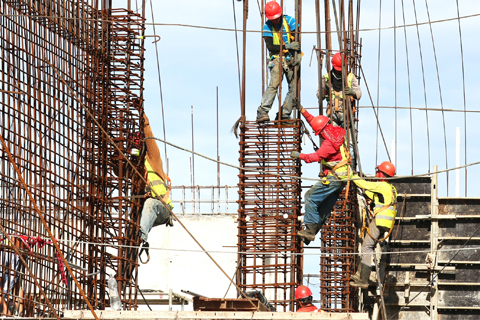UNGPs 10+ Blog Series: Remedy
The fourth action item, titled “Access to Remedy,” deals with exactly that. What happens to exploited workers when their human rights are violated?
The fourth action item, titled “Access to Remedy,” deals with exactly that. What happens to exploited workers when their human rights are violated?

This is the fourth in a series of blogs exploring the UNGPs 10+ roadmap through the perspectives of our partners. You can read the introduction here and view the full series here.
—
The fourth action item, titled “Access to Remedy,” deals with exactly that. What happens to exploited workers when their human rights are violated? While there’s been some movement in recent years towards more businesses and governments recognizing the need for remedy on paper, this action item specifically includes language on “moving from policy to practice” – an area which, according to Mustafa Qadri from Equidem, is still often sorely lacking.
 “I’ve interviewed hundreds, possibly a few thousand migrant workers over the last five years alone. It’s clear that so much of what is touted as major formal reforms simply don’t make life better for these women and men – they still don’t get paid on time if at all, they fear complaining about things for fear of being punished, and the emotional toll is severe.
“I’ve interviewed hundreds, possibly a few thousand migrant workers over the last five years alone. It’s clear that so much of what is touted as major formal reforms simply don’t make life better for these women and men – they still don’t get paid on time if at all, they fear complaining about things for fear of being punished, and the emotional toll is severe.
There are “low-hanging fruit” solutions that could happen immediately to address the disconnect: state authorities could sanction the owners and managers of major businesses guilty of labour violations, they could announce a roadmap for requiring all enterprises to have worker representative committees, and governments could simply stop prosecuting workers and activists for reporting on exploitation.
But to actually address these problems long-term, workers must be able to unionise, to have a path to citizenship, and governments need to crackdown on the charging of recruitment costs to workers that allows business to profit from subsidised, exploited workers. The deeper problem is structural, it’s the racism, the sexism, the discrimination baked into a labour code that allows businesses to profit from cheap, exploited labour. Those seem like such monumental problems that there is no hope for change.
But change is exactly what is needed, whether in the Gulf, in the United States, or anywhere else. Climate change and increasing inequality makes the current approach unsustainable. Scientists say the Gulf states will become too hot to be inhabitable in coming decades in large part due to the carbon emissions from oil and gas that fuel the region’s wealth. That wealth itself will disappear this century, so the Gulf states will need to diversify their economies and labour markets to survive.
We can either be ahead of the curve, give the world’s marginalised peoples a seat at the table in the workplace, among other reforms, or we can let forced labour and exploitation escalate and engulf us in unending political and social crisis. When you realise the necessity of these changes, you understand not only that the arc of history bends towards justice. You know there simply isn’t any justification for this system not to reform. It is literally a matter of survival.”
The next blog post in this series will focus on two closely interconnected areas: improving and expanding stakeholder engagement efforts, and maximizing the use of all the leverage tools available, to quicken the pace of meaningful change.